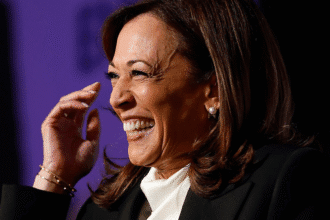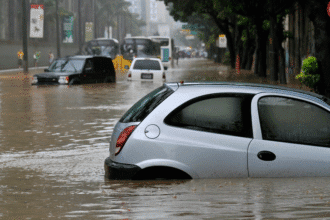Indian Prime Minister Narendra Modi informed US President Donald Trump in a firm diplomatic exchange that India would not allow any third-party intervention on the Kashmir issue. The conversation transpired during a recent phone call started by Trump. A top diplomatic official from India said that Modi clearly expressed that Kashmir is still a bilateral dispute between India and Pakistan, with no place for outside meddling.
- Why does India turn aside from outside mediation?
- Which set off this most recent diplomatic reaction?
- Was the ceasefire mediated by the US indeed?
- Modi gave Trump what precisely?
- Why is Kashmir a delicate subject?
- What followed the clamor for Trump?
- In what ways are these remarks influencing US-Indian relations?
- Could Future Peace Efforts Favor Direct India-Pakistan Dialogue?
- What wider effects might India’s strong posture have?
- Conclusion
Why does India turn aside from outside mediation?
India has always maintained that Kashmir is an internal subject best resolved by bilateral communication with Pakistan. India sees every offer of outside mediation as a challenge to its sovereignty and as a departure from the Simla Agreement of 1972. Signed following the Indo-Pakistani conflict, the pact amply demonstrated that both nations would settle their differences free from outside intervention.
Long seen as undermining India’s territorial claims and providing access to foreign interference in domestic matters, such overtures have been interpreted by the country’s leadership as New Delhi regularly objects to such recommendations. Here is the link to our article on the Kashmir Rail Bridge
Which set off this most recent diplomatic reaction?
Following a major military flare-up between India and Pakistan early in May, the diplomatic reaffirmation emerged. A lethal terrorist strike on April 22 in Indian-administered Kashmir, killing 26 people, largely tourists, set off the conflict. India challenged Islamabad’s denial when it blamed Pakistan for housing the attackers.
India started airstrikes against what it said twereerrorist training facilities in Pakistan in reprisal. Four days of military activity followed as both countries accused one another of attacking military bases and airfields and traded fire. Up until May 10, when a truce was announced, tensions stayed high.
Was the ceasefire mediated by the US indeed?
President Trump said that stopping the war was mostly dependent on his government. Reportedly adding, “If you stop it, we’ll do a trade,” he said he had used continuous trade negotiations with both countries as a reward. Should you not, we will not engage in any trade.
Pakistan backed the allegation that peace was brokered by outside players, particularly the US. India denied these claims, though, vehemently. Indian sources claim that direct communication via pre-established channels between Indian and Pakistani military officials brought about the ceasefire.
Modi gave Trump what precisely?
Modi clarified during the conversation that India’s military operation was a targeted and proportionate reaction, just meant to neutralize terrorist threats, therefore giving a thorough explanation of it. He also made it plain that diplomatic mediation or economic negotiations had nothing to do with the crisis.
Later on, India’s foreign secretary attested to Modi telling Trump, “No talks were held at any level on the India-America trade deal or on any American mediation during or after the conflict.”
This comment sought to destroy any impression of India caving in to pressure or of foreign influence producing the truce. Here is the link to our article on the Indian Naval Accident
Why is Kashmir a delicate subject?
Since 1947, Kashmir has been a contested territory claimed by both India and Pakistan in whole but only in portions under control. The area has seen constant upheaval, conflicts, and several wars. For India, Kashmir represents national unity and integrity rather than only a territorial concern.
Any international conversation regarding Kashmir sis seen in India as an intrusion on its sovereignty. Whether the offers come from allies or neutral parties, Indian officials have consistently strongly rejected outside participation over the years. Every mediation creates a risky precedent, in their opinion.
What followed the clamor for Trump?
Following his discussion with Modi, Trump expressed gratitude for India’s efforts at situational control. He also expressed a desire to interact with India going forward, especially via strategic and economic alliances. Indian officials turned down a suggested visit, though, because of scheduling issues.
Notwithstanding the debate, both countries keep on with trade negotiations and international cooperation in fields including defense, technology, and climate.
In what ways are these remarks influencing US-Indian relations?
With a common interest in regional stability, economic development, and counter-terrorism, the United States and India have a developing strategic cooperation. But Trump’s remarks tying commerce to the Kashmir dispute have made Indian diplomatic circles uncomfortable.
Particularly in remarks made by Western politicians, India has consistently opposed attempts to be officially clubbed with Pakistan. Indian officials have generally disapproved of such public framing of both countries as equals, especially about conflict.
Still, analysts think long-term bilateral relations are unlikely to be seriously disrupted. The Indian administration has shown a readiness to separate problems, concentrating on strategic and financial objectives while maintaining a strict sovereignty policy.
Could Future Peace Efforts Favor Direct India-Pakistan Dialogue?
Particularly in times of more violence, world leaders could keep suggesting peace negotiations between India and Pakistan. Still, India’s position seems unlikely to evolve. Unless both nations agree clearly, offers of mediation—no matter how well-intentioned—are likely to encounter opposition.
Future initiatives should, according to analysts, concentrate on promoting direct communication between New Delhi and Islamabad, so as to boost bilateral conflict-resolution systems instead of third-party intervention.
What wider effects might India’s strong posture have?
India’s denial of mediation supports its status as a sovereign power able to run its affairs. It also tells other world players that India expects respect for its political sensitivities and limits. This posture enables India to keep strategic autonomy and build closer alliances grounded on mutual respect and well-defined conditions.
India is still pushing for regional stability concurrently, participating in global forums and international alliances to handle commerce, development, and terrorism.
Conclusion
India’s historical and diplomatic approach fits its staunch rejection of outside mediation on Kashmir. The Modi government has made plain that any future peace process must take place via direct channels, even if tensions with Pakistan relax for now. Refined during the phone chat with President Trump, this message emphasizes India’s dedication to bilateral diplomacy and sovereign decision-making.
Though not without diplomatic difficulties, the larger cooperation is still intact, with economic discussions and strategic alliances between New Delhi and Washington ongoing. For India, the red line is still clear: Kashmir is not subject to outside debate.








